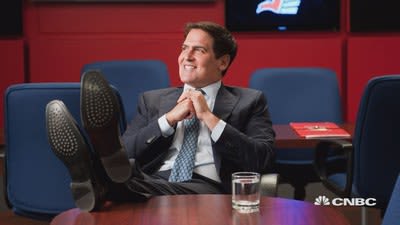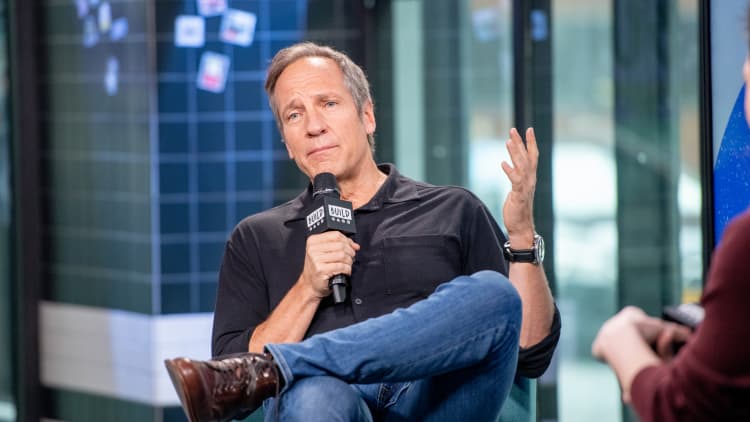The idea of following your passion may sound romantic, but it usually doesn't work out the way you think it will, according to "Dirty Jobs" host Mike Rowe.
Too many people spend too much time and money chasing their passion when seizing opportunity is a better bet, he says.
"If there was a recurring lesson on 'Dirty Jobs,' it was to understand how many people we featured on that show that looked like they were doing something that should have made them miserable, but were in fact very, very happy in their work. And surprisingly prosperous," says Rowe, whose new Discovery Channel limited series, "Dirty Jobs: Rowe'd Trip," premieres Tuesday.
Many people plan their life around finding job satisfaction and often, "that plan includes borrowing vast sums of money in order to go to a four-year school to get the degree that will allow you to get to the next step as you seek to get the thing that will make you happy," he says. (The average student loan debt per borrower is $32,731, according to the U.S. Department of Education.)
"And now they have to go out into the world to try and get hired into their chosen field," he says. "And it doesn't always work out. In fact, it rarely works out."
"That's part of why we have [over $1.6 trillion dollars in student loans] on the books. I think a lot of people were told that if they borrowed the money to get their degree, then they would wind up with the job that they were passionate about."
However, "if you think there's only one job in the country that can possibly satisfy your passion, then you're gonna spend a lot of time looking for that one job as opposed to finding an opportunity."
And finding opportunity in the job market is key, according to Rowe. He says many people he featured on "Dirty Jobs" were actually multimillionaires who achieved success by fulfilling a gap in the market rather doing what they were personally interested in.
"The truth is, [for] most passionate people on ['Dirty Jobs'] anyway, [they] weren't passionate about what they were doing when they started doing it," Rowe says.
"They simply...learned a skill that was in demand. Then they got hired applying that skill. Then they figured out how to get really, really good at it. And then they figured out how to love it."
Rowe isn't the only entrepreneur who rejects the idea of following your passion to determine your career.
"One of the great lies of life is 'follow your passions,'" because what you're passionate about may not be realistic, billionaire Mark Cuban said in 2018.
"I used to be passionate about being a professional basketball player. Then I realized I had a 7-inch vertical," says Cuban. (Top contenders in the 2019 NBA draft all had a max vertical leap over 40 inches.)
Instead, "evaluate and say, 'Okay, where am I putting in my time?'" Cuban said. Because "where you put in your effort, that tends to be the things that you are good at. And if you put in enough time, you tend to get really good at it," Cuban said.
It's how Cuban became a tech mogul. When he was young, he was never interested in technology: "I took one computer class and cheated at it," he said in an interview on ABC's "Shark Tank."
"But when I got one of my first jobs out of school using technology, it was like, wait, I love this. I've taught myself the program, I could go seven hours, eight hours without taking a break thinking it was 10 minutes because I was concentrating so hard and so excited and really loved it. And that's when I realized that I can be really, really good at technology."
Such expertise was also in demand. So Cuban started his first business, MicroSolutions, which he sold to CompuServe for $6 million in 1990.
Today, Cuban is worth $4.3 billion.
So Rowe urges young people to "keep your mind open" when it comes to finding a career.
"We all want to be engaged. We all want to love whatever it is we do," Rowe admits. "But I don't know that the best way to do that for a 17-year-old person is to try and identify what they think will make them happy and then borrow whatever it takes to go get it."
Try "doing what you can to be great" at a skill that is in demand. "And then [do] what you can to love it. In the end, you still want to wind up passionate about whatever you're doing. Just a question of the chronology you choose to get there."
Disclosure: CNBC owns the exclusive off-network cable rights to "Shark Tank."
Check out: The best credit cards of 2020 could earn you over $1,000 in 5 years
Don't miss:




